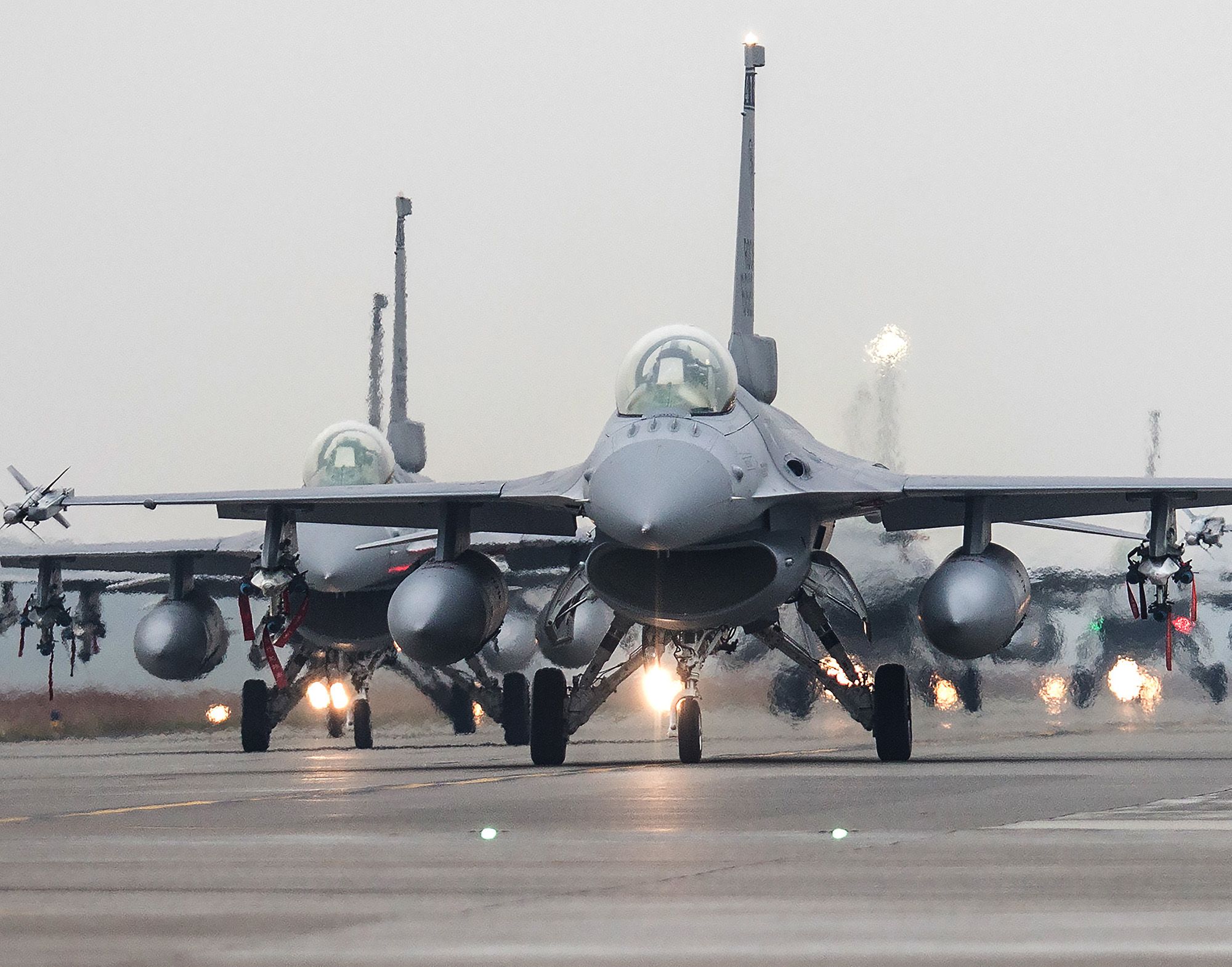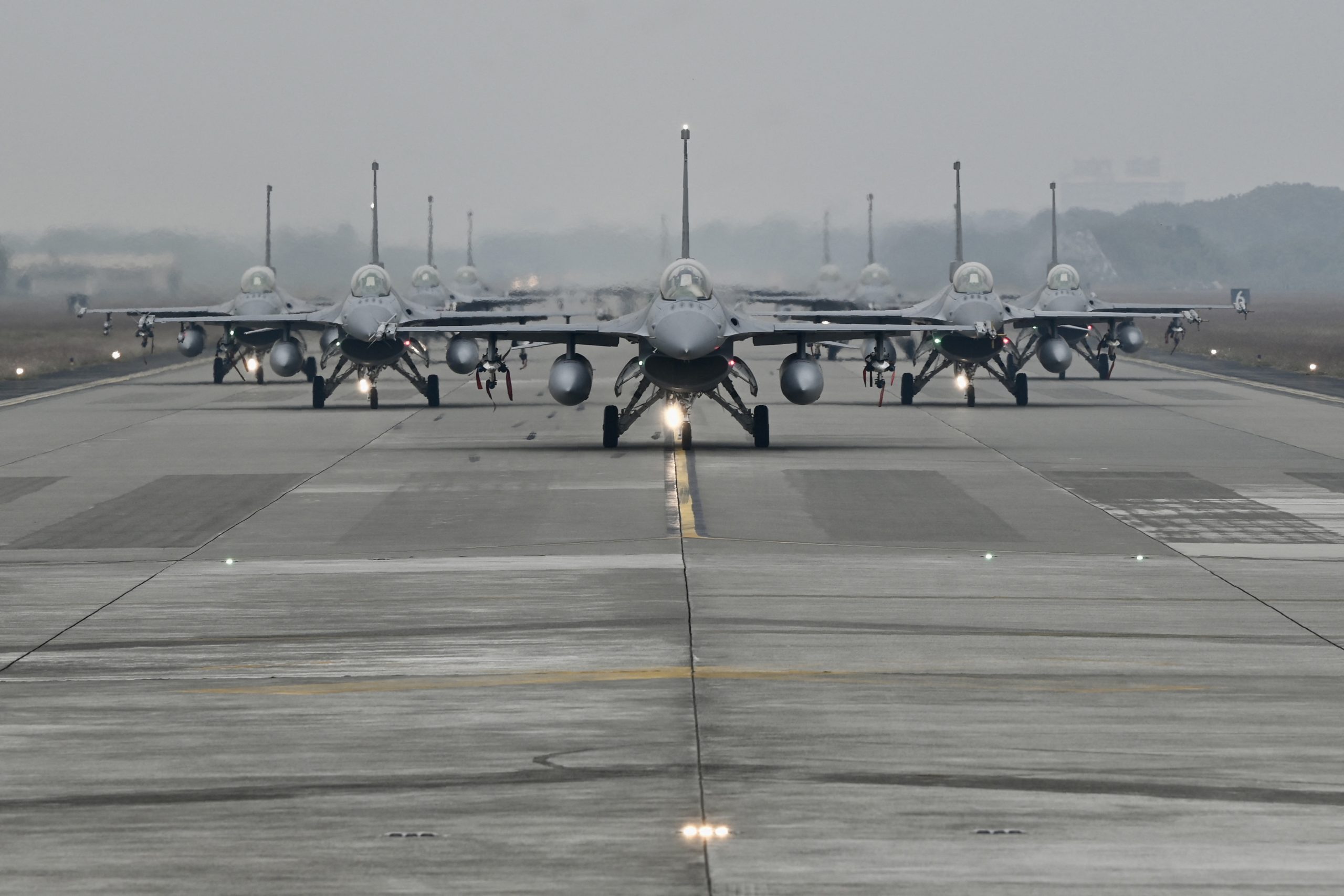Taiwan has taken a significant step toward bolstering its ground-attack capabilities for its F-16 Fighting Falcon aircraft, with the Pentagon recently awarding a manufacturing contract. This move brings the island nation closer to acquiring advanced weaponry crucial for its defense.
The contract, granted to Arizona-based Raytheon Missile Systems, a subsidiary of RTX Corp., on February 2, marks a crucial development. It involves the production of 50 AGM-154 Joint Standoff Weapon (JSOW) glide bombs, a foreign military sale approved by the United States six years ago.
With 139 F-16 fighters in its fleet, Taiwan is poised to become the largest operator of this airframe in Asia, a status reinforced by the pending delivery of 66 additional jets by Lockheed Martin, part of an $8 billion deal initiated in 2019. Notably, the island’s existing fleet has undergone hardware upgrades to the F-16V variant, termed Viper, completed in December as announced by the Air Force Life Cycle Management Center.

Taiwan’s F-16 Fleet Upgrades Signal Strengthened Defense Capabilities (Credits: Air & Space Forces Magazine)
The strategic imperative for Taiwan’s military modernization lies in deterring China, which asserts Taiwan as part of its territory and has openly declared intentions to reclaim it through force if necessary. Taiwan’s air force shoulders significant responsibility in patrolling its surrounding airspace and countering Beijing’s assertive maneuvers in the Taiwan Strait.
The latest U.S. military contract, valued at $68.42 million, underscores Taiwan’s continuing efforts to strengthen its defense capabilities. Both Raytheon Missile Systems and Lockheed Martin, instrumental in producing weapons systems bound for Taiwan, have faced sanctions from China due to their involvement in these endeavors.
The AGM-154 JSOW, weighing 1,000 pounds, is expected to significantly enhance Taiwan’s ability to conduct standoff strikes over extended ranges once integrated into its F-16 fleet. Equipped with avionics, including wings for added lift, this glide bomb can deploy various lethal payloads accurately at designated targets, thus bolstering Taiwan’s offensive capabilities.
Crucially, the JSOW’s operational range of 13-80 miles, extendable during high-altitude releases, enables engagements beyond the reach of enemy defenses. Operating as a “fire-and-forget” precision bomb, it eliminates the need for further guidance, offering tactical advantages to Taiwan’s comparatively outnumbered fleet of fighter aircraft.
The scheduled delivery of these munitions by 2028 is part of Taiwan’s broader procurement strategy, which includes purchases worth over $19 billion from the United States. Given the widening power asymmetry across the Taiwan Strait, American lawmakers advocate for expediting such acquisitions to address Taiwan’s defense needs promptly.
Taiwan’s acquisition of the JSOW in 2017, among the first weapons sales approved during the administration of former President Donald Trump, underscores the enduring partnership between Taipei and Washington.
Despite the absence of formal diplomatic relations, the Taiwan Relations Act of 1979 obliges the United States to assist Taiwan in equipping itself defensively, countering Chinese military assertiveness in the region.























